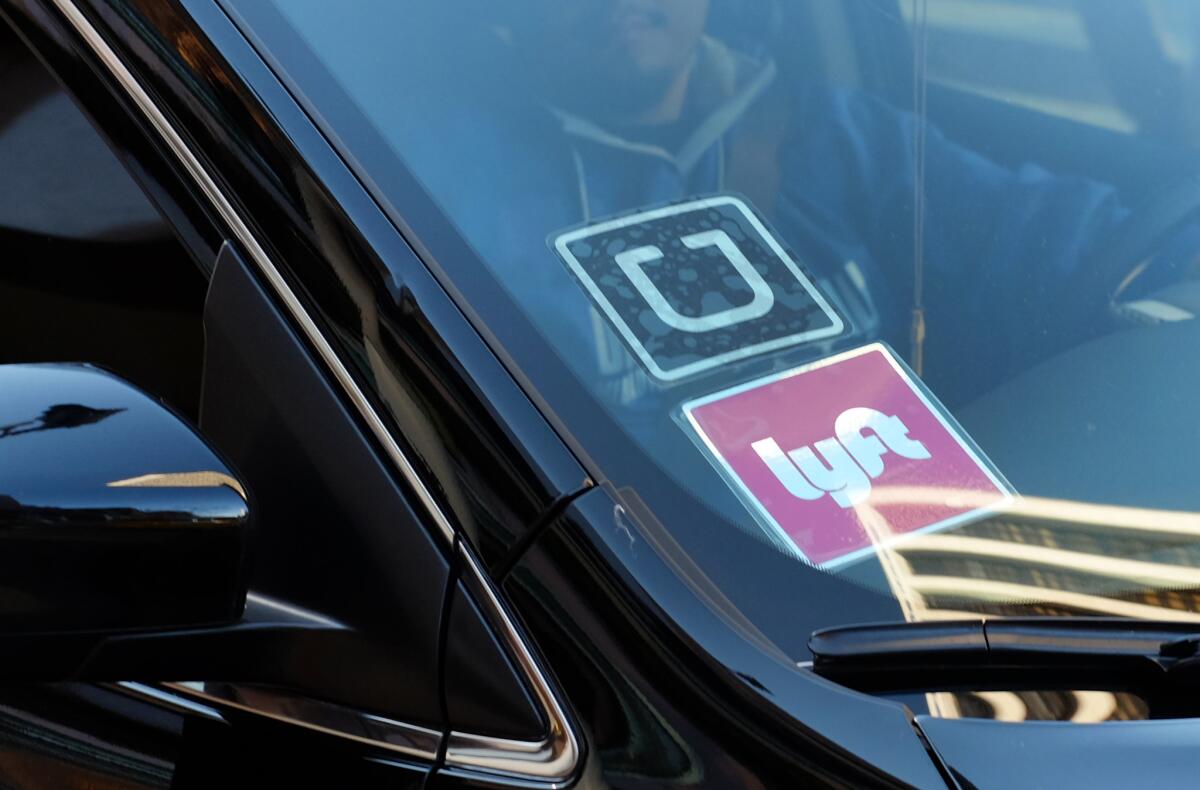Lyft’s latest response to Uber: Premier service in high-end rides

- Share via
In the fast-moving industry of ride-hailing services, bitter rivals Uber and Lyft seem to abide by a familiar business-world maxim: If you can’t beat ’em, join ’em.
Lyft announced on Wednesday a new feature that allows passengers to book rides in luxury cars – an offering that competes with Uber’s longstanding limousine service.
Dubbed Premium, the feature offers rides in cars from high-end makers such as BMW and Audi in Los Angeles, San Francisco and New York City.
Customers pay $2.66 a mile, a significant increase from its $1.16-a-mile rate for its regular service. Uber’s high-end service, UberBlack, generally costs about twice as much as it main ride-hailing service, UberX.
Lyft describes the new feature as a perk for business meetings or nights out.
The company’s move to a high-end offering shows how the San Francisco start-up and its biggest competitor have grown alike as they have grown bigger, said Augie Ray, an industry analyst at Gartner Inc.
“I am surprised it didn’t come a little earlier,” Ray said. ”Lyft felt their mission was to be a little more personable, a little more authentic, where Uber got started as a black car and became a peer-to-peer model. I think this is Lyft’s way of being authentic with its peer-to-peer routes while offering something similar to Uber.”
The companies are playing the tech world’s version of leap-frog. When one releases an update or a new feature – say a carpooling feature or a fare cut – the other often adopts something similar.
Each company has accused the other of stealing trade secrets and each has gone to great lengths to enlist the other’s drivers and customers. They have also fought for investor funding – a battle Uber is winning by a large margin. Uber has been valued at $68 billion, more than 10 times as much as Lyft,
Lyft says its customers are clamoring for the service (60% requested the option for a more luxurious ride in a survey, according to the company).
But Evan Rawley, a Columbia University business professor who studies ride-hailing, says high-end rides represent a small portion of the business.
“It’s a much smaller market than the regular sedan market,” said Rawley, who estimates that UberBlack accounts for only 5% of Uber’s business. “It’s sort of a niche market. I wouldn’t expect it to be something that alters the economics of Lyft.”
Though the posh rides may seem like a step away from Lyft’s warm and fuzzy brand image, analysts doubt that it will hurt the company’s standing among customers.
Both Lyft and Uber have been looking for new ways to create features that benefit both passengers and drivers. Premier can be looked at as an extension of that idea.
“Lyft has been drifting away from the original message quite a bit,” Rawley said. “Originally you sat in the front seat and chatted with the driver. Lyft is becoming a very similar business to Uber. Does it matter to consumers? Maybe a little bit. Does it matter to drivers? Probably not.”
ALSO
Uber raises $1.15 billion in leveraged loan
TSA cheers itself for cutting airport wait times over July 4 weekend
Theranos CEO Elizabeth Holmes is banned from running medical labs
More to Read
Inside the business of entertainment
The Wide Shot brings you news, analysis and insights on everything from streaming wars to production — and what it all means for the future.
You may occasionally receive promotional content from the Los Angeles Times.










